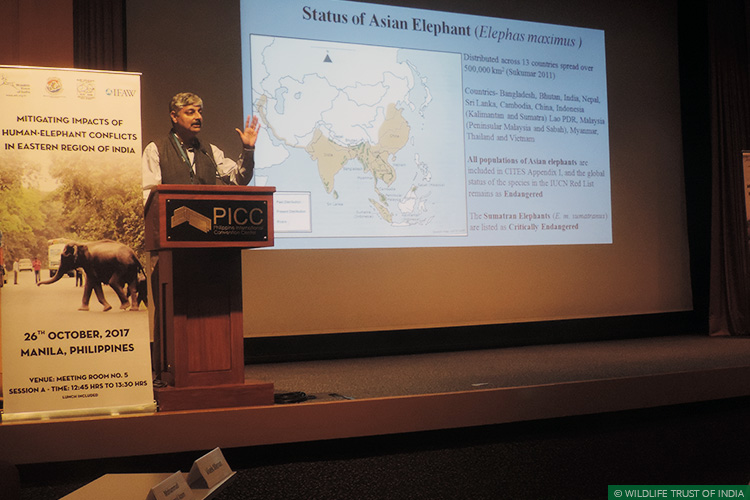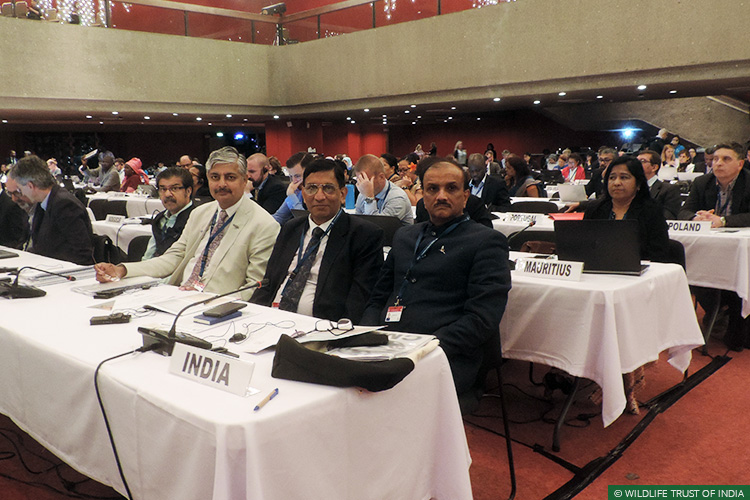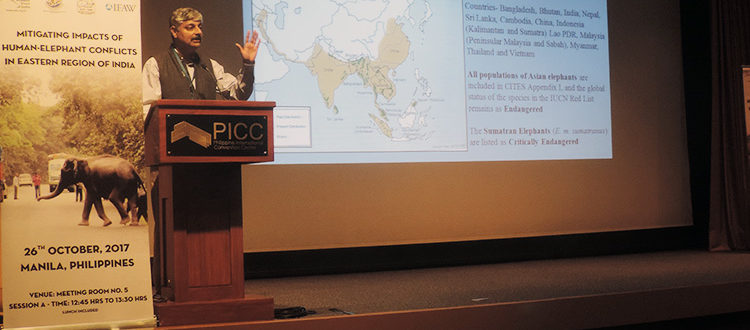CMS Comes of Age: COP12 Focuses on Increased Protection of Migratory Species and Sustainable Development

Manila, Philippines, October 28, 2017: The Twelfth Meeting of the Conference of the Parties to the Convention on the Conservation of Migratory Species of Wild Animals (CMS COP12) concluded in the Philippines today. This was the first time CMS has convened a COP in Asia since the international treaty was adopted in Bonn, Germany in 1979.
The theme of COP12, which began on October 23, was ‘Their Future is Our Future – Sustainable Development for Wildlife & People’, reflecting an increasing awareness of the importance of migratory animals in the context of human development. Among a number of announcements, representatives of governments attending the summit took a major step towards agreeing to strengthen measures for the conservation of a wide range of migratory species. Also vital was the announcement of a new set of guidelines for regulators that will significantly help to manage marine noise, which is increasingly posing a major threat to many marine animals.
WTI CEO Vivek Menon, also the current Chair of the IUCN/SSC Asian Elephant Specialist Group, presented an overview of the status of wild elephants in Asia.
Vivek Menon, Wildlife Trust of India CEO and Senior Advisor to the President, IFAW, attended the conference in the additional capacity of Technical Advisor to the Government of India. The Indian delegation played a key role as the proposal to list whale sharks on Appendix 1 (which requires CMS Parties to strive towards strictly protecting listed animals, conserving or restoring the places where they live, mitigating obstacles to migration and controlling other factors that might endanger them) was accepted by the CMS committee. Wildlife Trust of India (WTI) has played a leading role in whale shark conservation through its award-winning community led conservation project in Gujarat and its recently launched awareness campaign in Kerala.
In a session on ‘Conservation breeding of vultures and protection of Amur falcons through community participation’, Mr Menon presented WTI’s seminal project that has prevented the mass hunting of Amur falcons in Wokha, Nagaland. Other speakers included Satya Prakash Tripathi, Chief Wildlife Warden of Nagaland, and Dr Suresh Kumar of the Department of Endangered Species Management, Wildlife Institute of India.

In another session on ‘Mitigation of the impact of Human Elephant Conflict in the Eastern region of India’, Mr Menon, who is also the current Chair of the IUCN/SSC Asian Elephant Specialist Group (AsESG), presented an overview of the status of wild elephants in Asia. He also urged Parties to support the inclusion of the Asian elephant into CMS appendices when India would submit the proposal in the next COP. Other speakers were RK Srivastava, Inspector General of Forests (Project Elephant), Mohammad Shamshul Azam, Deputy Chief Conservator of Forests, Government of Bangladesh, and Matthew Collis, Director, International Policy, IFAW.
India has offered to host the next CMS COP, which will be held in 2020.









